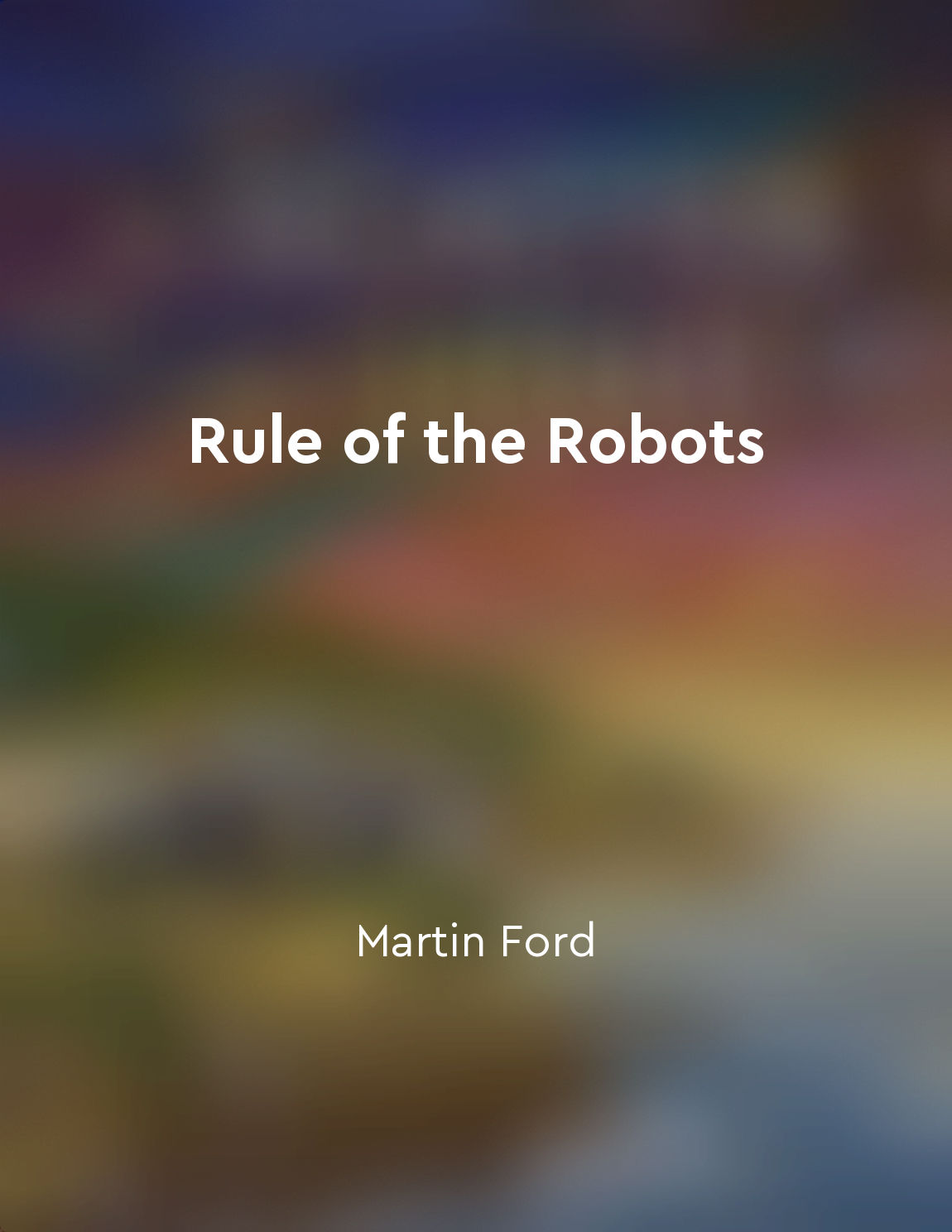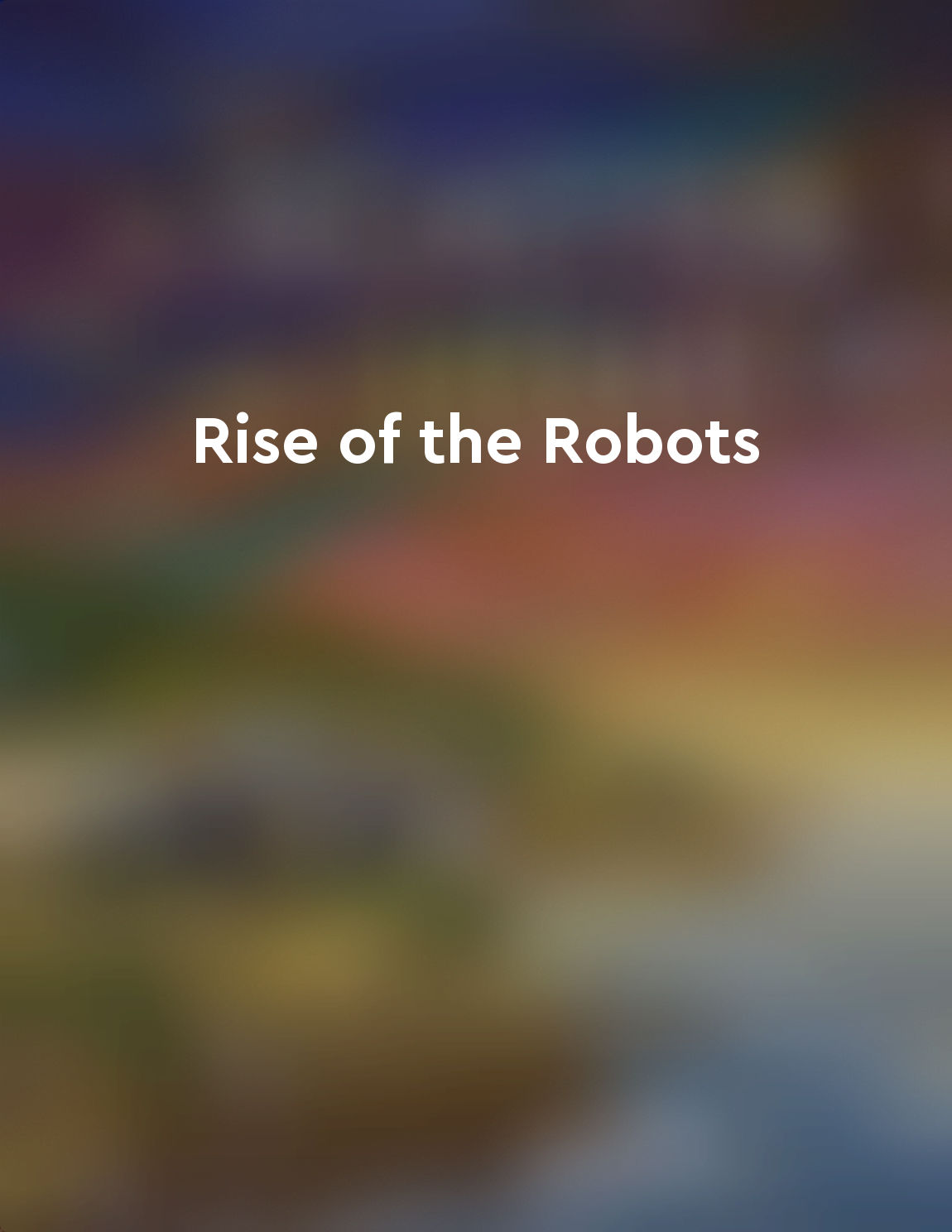This trend is causing widespread concern and fear from "summary" of Rise of the Robots by
The rapid advancement of automation and artificial intelligence has sparked a wave of unease and anxiety among workers across various industries. The fear of losing jobs to machines has become a pervasive concern, as more tasks traditionally performed by humans are being automated. This trend is not limited to factory workers or low-skilled laborers; even professionals in fields such as law, finance, and medicine are feeling the pressure of automation. The fear is further fueled by the increasing capabilities of robots and AI systems, which are now able to perform complex cognitive tasks that were once thought to be the exclusive domain of humans. Machines are now capable of learning, adapting, and making decisions on their own, raising questions about the future of work and the role of humans in an increasingly automated world. As companies seek to cut costs and increase efficiency, the trend towards automation is only expected to accelerate in the coming years. This has led to concerns about the widening gap between the rich and the poor, as automation threatens to displace large numbers of workers while benefiting those who own and control the technology. The potential consequences of this trend are far-reaching, affecting not just individual workers but entire economies and societies. The fear and concern surrounding the rise of robots are not unfounded, as history has shown that technological advancements can have profound social and economic impacts. The displacement of workers by machines has the potential to create widespread unemployment, disrupt industries, and exacerbate existing inequalities. As such, it is crucial for policymakers, businesses, and individuals to grapple with the implications of automation and work towards solutions that ensure a more equitable and sustainable future.Similar Posts
AI has the potential to enhance equality and social justice
AI holds the promise of helping to level the playing field when it comes to equality and social justice. One way in which AI ca...
The use of AI in agriculture can increase efficiency
One of the most compelling applications of artificial intelligence lies in the realm of agriculture. By leveraging AI technolog...
The use of AI in agriculture can increase efficiency
One of the most compelling applications of artificial intelligence lies in the realm of agriculture. By leveraging AI technolog...
Capitalism has transformed work into a commodity
In the modern world, work has become something that is bought and sold, traded and hoarded like any other commodity. It is no l...
Universal basic income is a potential solution
The idea that universal basic income is a potential solution to the challenges posed by automation is gaining traction in polit...
Employment protection legislation seeks to safeguard workers from unfair treatment
Employment protection legislation is designed to provide a safety net for workers, ensuring that they are protected from any fo...
AI can improve efficiency and productivity in various fields
Artificial intelligence has the power to revolutionize the way we work in different industries. By leveraging AI technology, bu...

Wealth inequality could widen as automation reduces the need for human labor
As automation continues to advance, there is a growing concern that the gap between the wealthy and the rest of society could w...

The impact of automation on employment is a global issue that requires collaborative solutions
The disruptive force of automation is reshaping the global workforce, leading to significant implications for employment. As ad...

There are ethical concerns surrounding AI development
AI development is not just about technological advancement; it also raises significant ethical questions that need to be addres...
